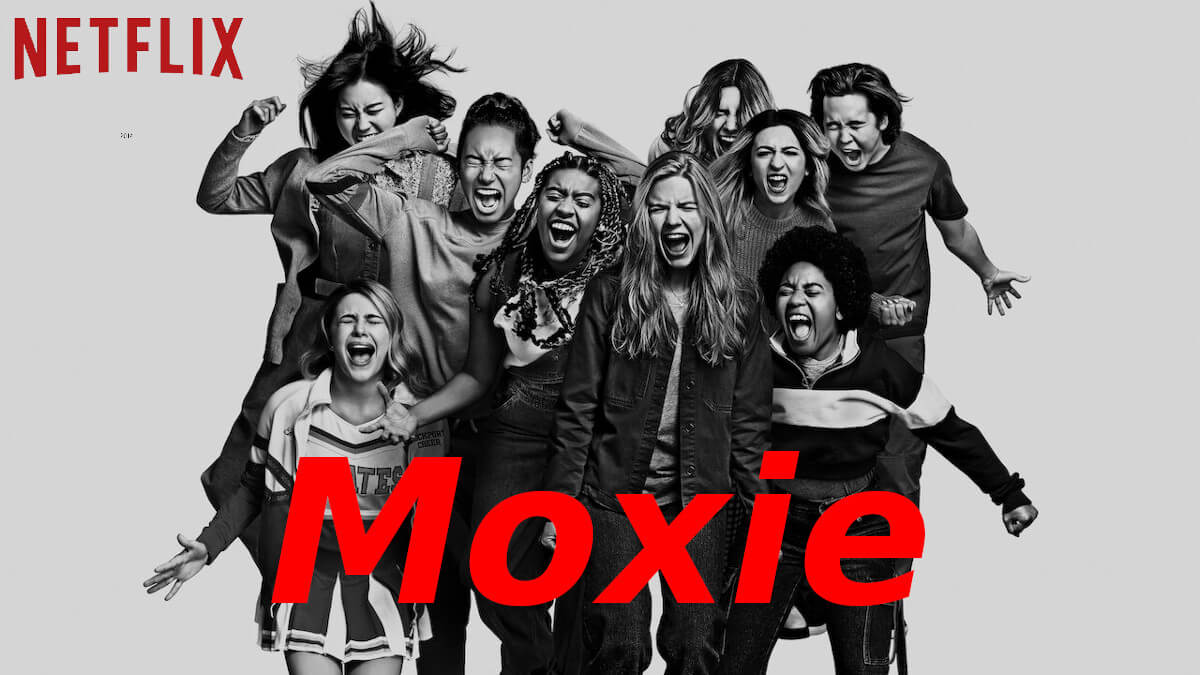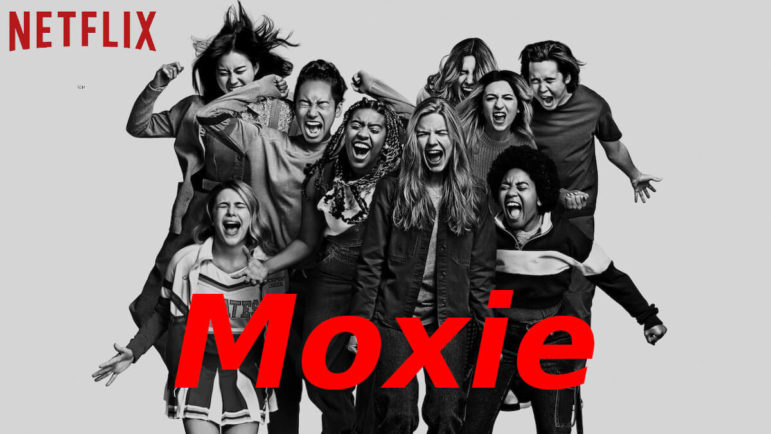
Based on the novel by Jennifer Mathieu, “Moxie’’ was released for streaming on Netflix on March 2. Directed by Amy Poehler, it crams in as many social issues as possible. Although she has directed before, “Moxie” was Poehler’s first movie intended for younger audiences, depicting a shy teenager who challenges the sexist status quo of her school by writing an anonymous zine — a homemade magazine — called Moxie.
Although a few reputable actors such as Clark Gregg play small roles, “Moxie” does well lending the spotlight to up-and-coming actors, such as Hadley Robinson who plays protagonist Vivian Carter, and was previously in “Little Women” and “Utopia.” Though the movie has its flaws, the lack of familiar faces may be a contributing factor to its poor critical reception, earning 66% on Rotten Tomatoes and 6.7/10 on IMDb.
Near the beginning of the film, the writers introduce elements characterizing Vivian, which are mainly brought full circle and add nuance to the scenes. For instance, the song that Vivian’s mom (Poehler) used to sing to her, “Rebel Girl” by Bikini Kill, is played in moments when Vivian feels empowered, such as writing the first zine or celebrating in anticipation of her friend Kiera (Sydney Park) winning the student-athlete award.
“‘Moxie’ tries to tackle … different issues under the umbrella of sexism, but many are glossed over”
In other instances, the movie introduces elements and seemingly forgets them later. As a result, the conclusion feels one dimensional. For example, Vivian is seen several times struggling with a question on her college application about issues she is passionate about. The viewer would assume that throughout the journey of the movie Vivian would discover a passion for feminism and use that as inspiration for the question, yet the application never shows up again, leaving the viewer confused about Vivian’s college plans.
“Moxie” tries to tackle many different issues under the umbrella of sexism but many are glossed over or don’t affect everyone. Unequal representation in sports is reduced to a few girls from the award-winning soccer team grumbling about the state of their uniforms. Kaitlynn (Sabrina Haskett) is impacted by unfair dress codes and sent home for wearing a tank top. Rather than shedding light on several causes, ‘Moxie’ throws in a catchphrase for the representation of too many issues, which lessens the impact of each issue.

The movie seems to misunderstand its message by making a single, one-dimensional character out to be the main antagonist. Mitchell Wilson (Patrick Schwarzenegger) is viewed as the sole instigator of sexism at the school. Many of Vivian’s efforts are directed toward him — she endorses Kiera for the student-athlete award to challenge Mitchell’s unquestioned authority at the school. Despite other students also being responsible for harassing girls, there is never any major action taken to better the school environment. Completely abolishing sexism at the school would be an unrealistic resolution, but focusing on making one student responsible for sexist actions seems illogical.
Emotional scenes felt awkwardly crafted, as the characters often began discussing events that have nothing to do with the conflicts causing the scenes. For example, when Vivian vents to her mom about her frustration at the lack of progress “Moxie” is making, she brings up her dad not inviting her for Christmas. This is the only moment Vivian’s dad is mentioned, so the sudden remark takes the viewer out of the scene. Additionally, it invalidates the status quo concerns Vivian brings up earlier in the rant by suggesting that they are on the same playing field as her relationship troubles.
Despite being a little overambitious with details, “Moxie” fulfills its main purpose — to entertain. The characters are likeable, and the storyline is easy to follow, although it may miss the mark in terms of being a revolutionary commentary on sexism. “Moxie” is worth watching if you are looking for a simple, entertaining coming-of-age story.





